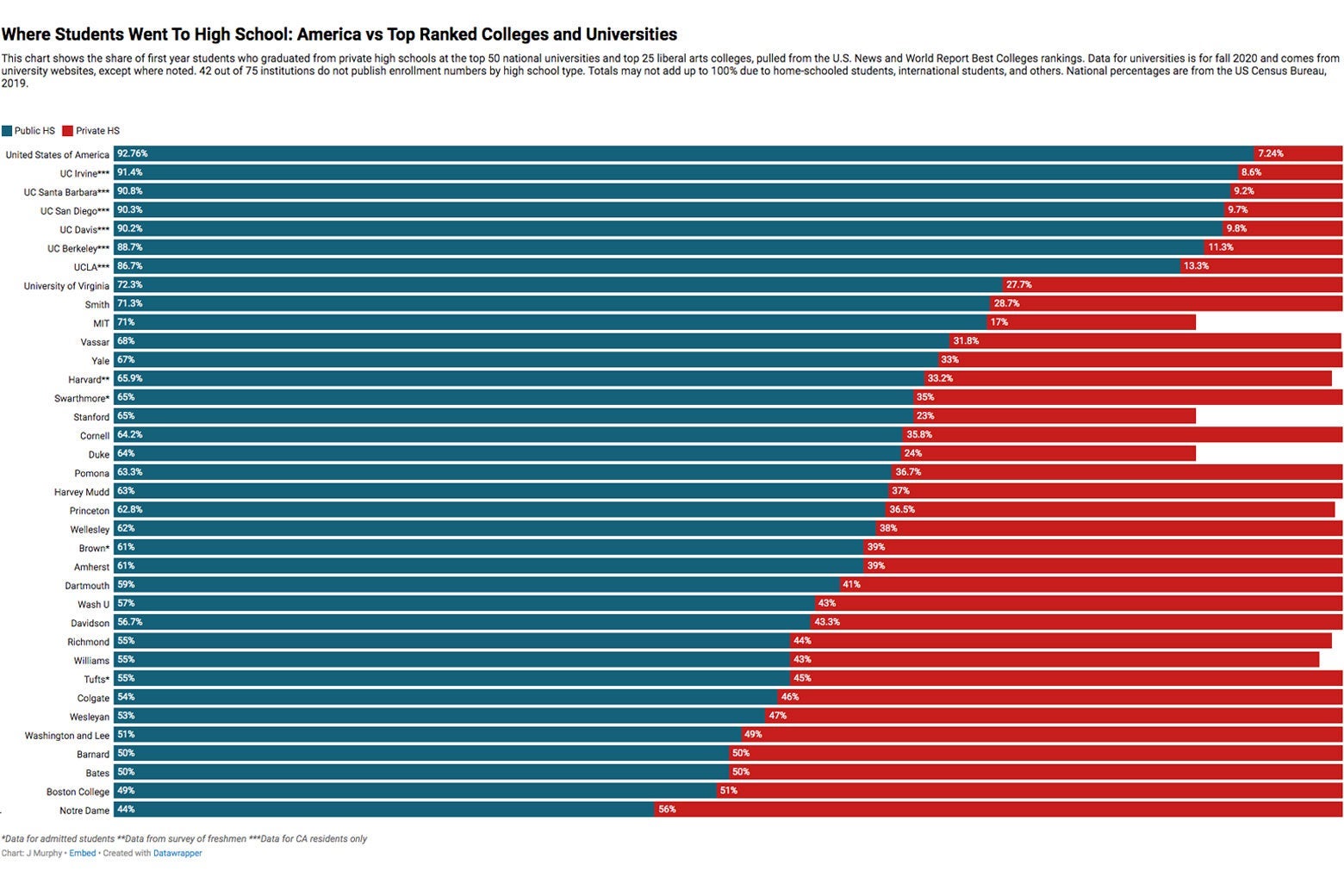I wrote last week about ongoing struggles for adequate public school funding, both across and within school districts, and how more privileged parents can buffer their children from budget shortfalls with their own fundraising and donations.
Private schooling is, of course, yet another layer of inequality in education. Shortly after writing that post about school funding in my state, James Murphy reposted his article from few years ago about the private school pipeline to the most selective colleges, a pipeline sustained by carefully nurtured relationships between college counselors in private high schools and admissions officers on college campuses.
As he shows, highly competitive colleges admit a disproportionate number of students in every class from private high schools, though only 7% of high school students graduate from private schools.

These pipelines are sustained in multiple ways. Murphy writes about the rituals of weekend retreats and east coast clam bakes where elite private high school counselors and elite college admissions staff mingle and share information. During admissions season, those high school counselors call admissions staff to reminisce about those days of camaraderie and to make the case for particular students. Counselors responsible for a small number of students in elite private high schools write detailed letters of recommendation for admissions files; letters from counselors in other schools supporting more than 100 students cannot possibly be as compelling.
A small number of special programs sponsor a small number of low-income students' enrollment in elite private high schools, but overwhelmingly, these are advantages purchased by wealthy white parents to get their children into the most competitive colleges.
And yet the courts have ruled that any consideration of race in admissions decisions is unfair.
The people in private schools need not be evil or scheming to hoard these advantages, but colleges can begin to rein them in.
Murphy calls on college to end the "counselor calls" through which some students have highly-paid personal advocates, for them to mask the names of high schools in admissions files, and to be open and transparent about the demographics of the high schools from which their admitted classes come.
It's difficult to see the argument against any of these changes. It's more difficult to see the argument for perpetuating systems that leave students who thrived in public high school against the odds believing, when rejected by their dream colleges, that they simply weren't good enough.
Also: A good fictional account of Ivy League admissions is Jean Hanff Korelitz's Admission.




